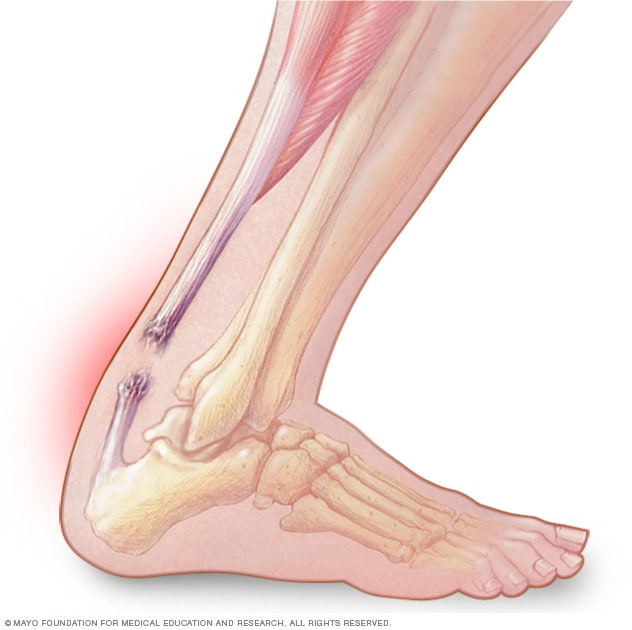Monthly Archives: May 2018
Achilles Tendon Rupture
Posted on May 22, 2018 by admin
The Achilles tendon connects the muscles from the calf to the heel bone. It assists us with pointing our foot towards the ground, rising on our toes, and it allows us to push off our foot when we walk. A rupture can be caused when there is a sudden increase in training intensity. Sports that involve jumping, running, and sudden starts and stops can lead to injuries to the Achilles tendon.

Majority of the people describe Achilles tendon rupture as a feeling of being kicked in the calf. When the injury happens, a popping or a snapping sound can be heard. Due to the pain at the back of the ankle and lower leg, the rupture can affect the injured person from walking normally. In order to prevent Achilles tendon injuries, one can increase their intensity of training slowly, perform exercises that strengthens the calf, and avoid running on hard surfaces. If a rupture occurs, surgery or nonsurgical treatments can be used to repair the Achilles tendon.
Recommended Plan of Management for Low Back Pain (LBP)
Posted on May 14, 2018 by admin
Educate on nature and course of LBP, provide reassurance, and advise on physical activity and self-management strategies. Based on patient preference and practitioner experience, we suggest:
Acute (0-3 months) Low Back Pain
- Spinal Manipulative Therapy (SMT), other commonly used treatments or a combination of SMT and commonly used treatments to decrease pain and disability in the short term.
Remark: Other commonly used treatments may include advice on posture and physical activity, and usual medical care when deemed beneficial.
Chronic ( > 3 months) Low Back Pain
- Spinal Manipulative Therapy (SMT) over minimal intervention to decrease pain and disability in the short term.
Remark: Minimal intervention includes manually applied forces with diminished magnitude or 5-minute light massage.
- Spinal Manipulative Therapy (SMT) or other treatments for short-term reduction in pain and disability.
Remark: Other treatments include extension exercises, advice plus exercise, myofascial therapy, or usual medical care when deemed beneficial. Pain relief is most effective within the first 6 months and functional improvement was most effective at 1 month.
- Multimodal therapy with or without Spinal Manipulative Therapy (SMT) to decrease pain and disability.
Remark: Multimodal therapy with SMT treatment may also include exercise, myofascial therapy, advice, educational material, usual medical care when deemed beneficial. SMT (2 sessions per week for 4 weeks) plus standard medical therapy has shown better pain and functional outcomes than standard medical care alone. Pain and functional improvement was also shown at 3 and 12 months.
Chronic ( > 3 months) Back-Related Leg Pain (Sciatica or Radicular Low Back Pain)
- Spinal Manipulative Therapy (SMT) plus home exercise and advice to reduce back pain and disability.
Remark: Reduced chronic back-related leg pain (sciatica or radicular LBP) and disability were observed at 12 weeks follow-up. Home exercise includes positioning and stabilization exercises.
Canadian Chiropractic Guideline Initiative
www.chiroguidelines.org